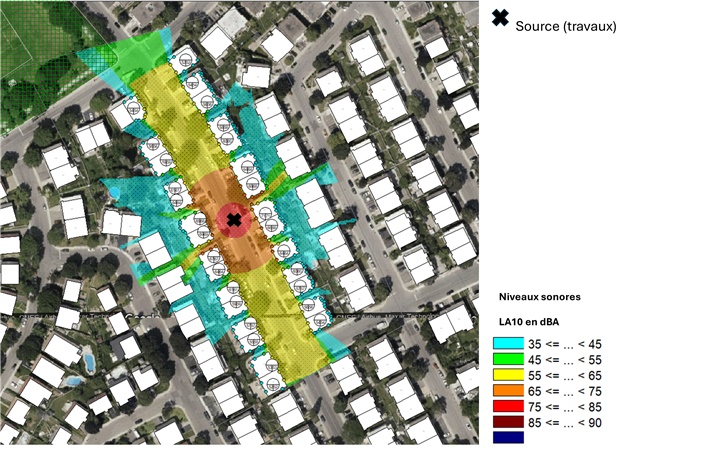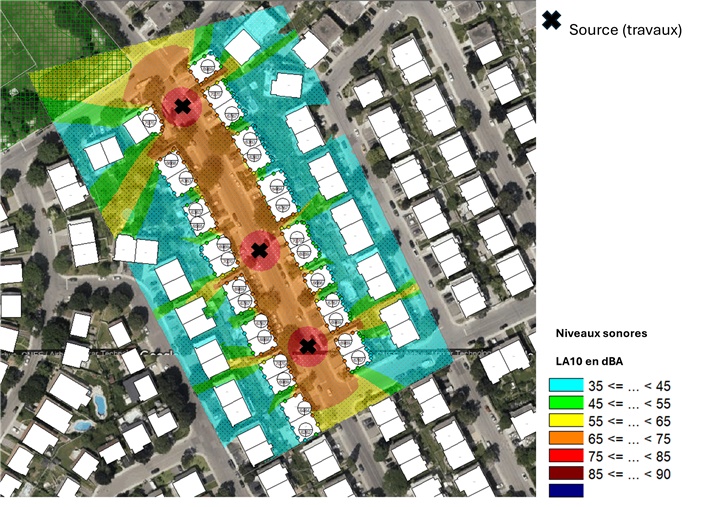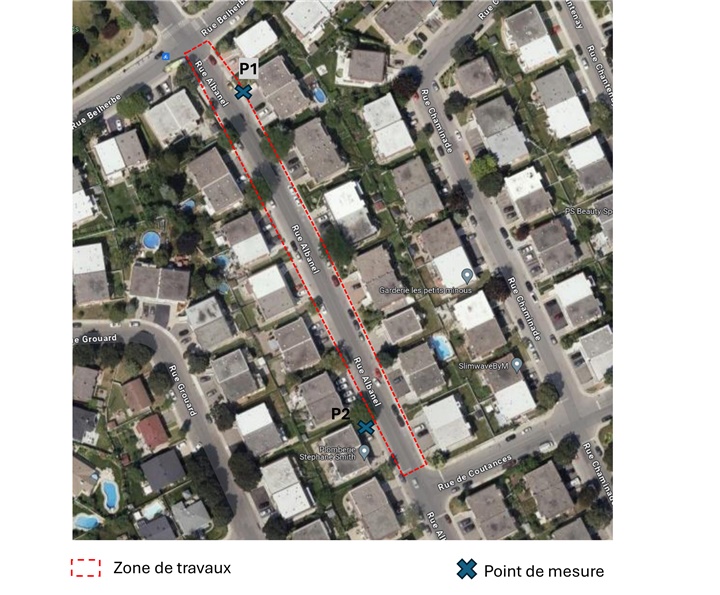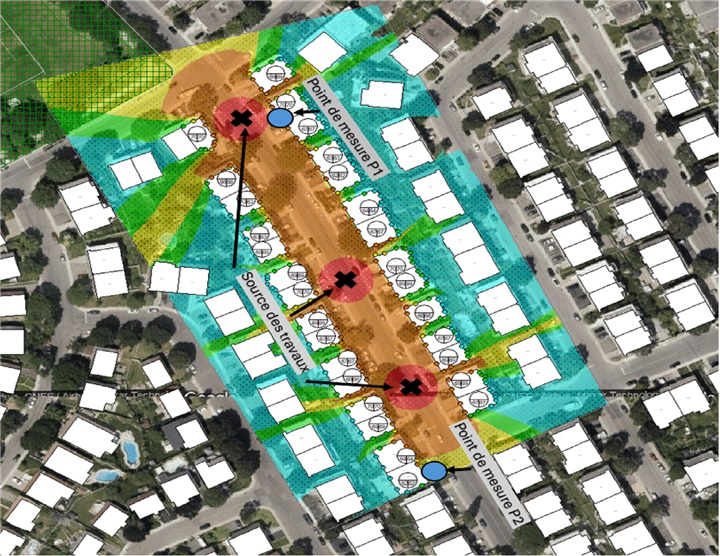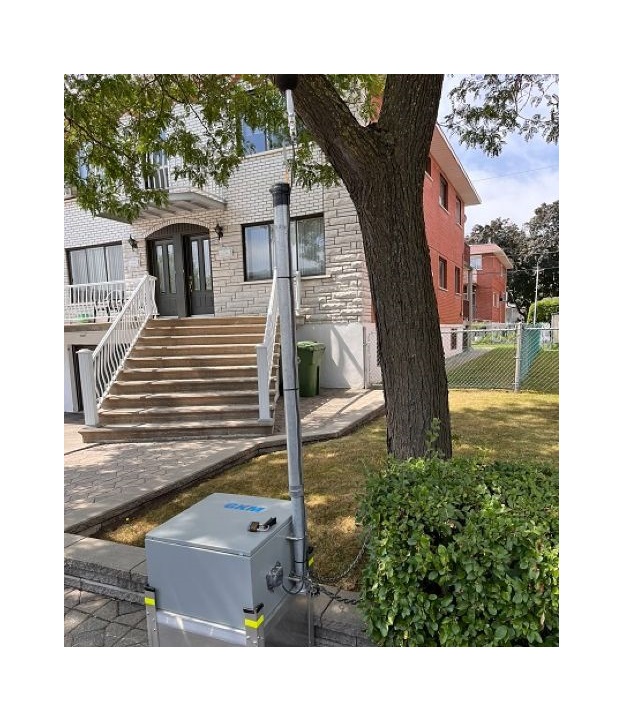The project involves water main and road work on Albanel Street, between de Coutances Street and Belherbe Street in Montréal. GKM Consultants was commissioned by Eurovia to conduct noise monitoring during the work. A detailed noise control strategy, consisting of a monitoring plan and a general policy, was developed.
According to City of Montréal regulations, residential noise levels during daytime hours (7 a.m. to 7 p.m.) must not exceed either 75 dBA or ambient noise + 5 dBA, whichever is higher. This limit is based on the following parameters:
- L10: indicator that noise levels exceeded the specified threshhold more than 10% of the sampling time. The sampling time was 30 minutes.
- Ambient level during non-work: represented by an Leq (equivalent level) measured over a minimum of 24 hours and on at least two (2) non-consecutive days before the start of construction work. Ambient noise assessments must cover daytime (7 a.m. to 7 p.m.), evening (7 p.m. to 10 p.m.), and nighttime (10 p.m. to 7 a.m.) periods.
Sound environment measurements were carried out before work began to determine ambient noise levels and, by extension, the noise limits to be applied once work is underway. Ambient noise levels were found to be below the 75 dBA threshold, even with the addition of 5 dBA to ambient noise. Class 1 sound level meters were used to ensure maximum accuracy.
The work took place over about 100 days and was divided into multiple phases, such as installing a water line, reconstructing sidewalks, and repairing storm sewers.
Acoustic simulations, based on the Federal Highway Administration’s TNM model, were performed using CadnaA software. This is a way of predicting noise levels while accounting for factors like topography, buildings, and equipment characteristics. The results show that noise levels generated by the work will not exceed the 75 dBA limit for residential settings, even when multiple jobs are being carried out at the same time. The results of LA10 index calculations are represented by isophonic surfaces, illustrating work at different locations.
The noise monitoring plan shows that projected noise levels will not exceed the 75 dBA limit for neighbouring residences. Acoustic modelling was used to validate these projections. Continuous noise monitoring was needed to prepare accurate forecasts and ensure noise pollution remained under control throughout construction.
